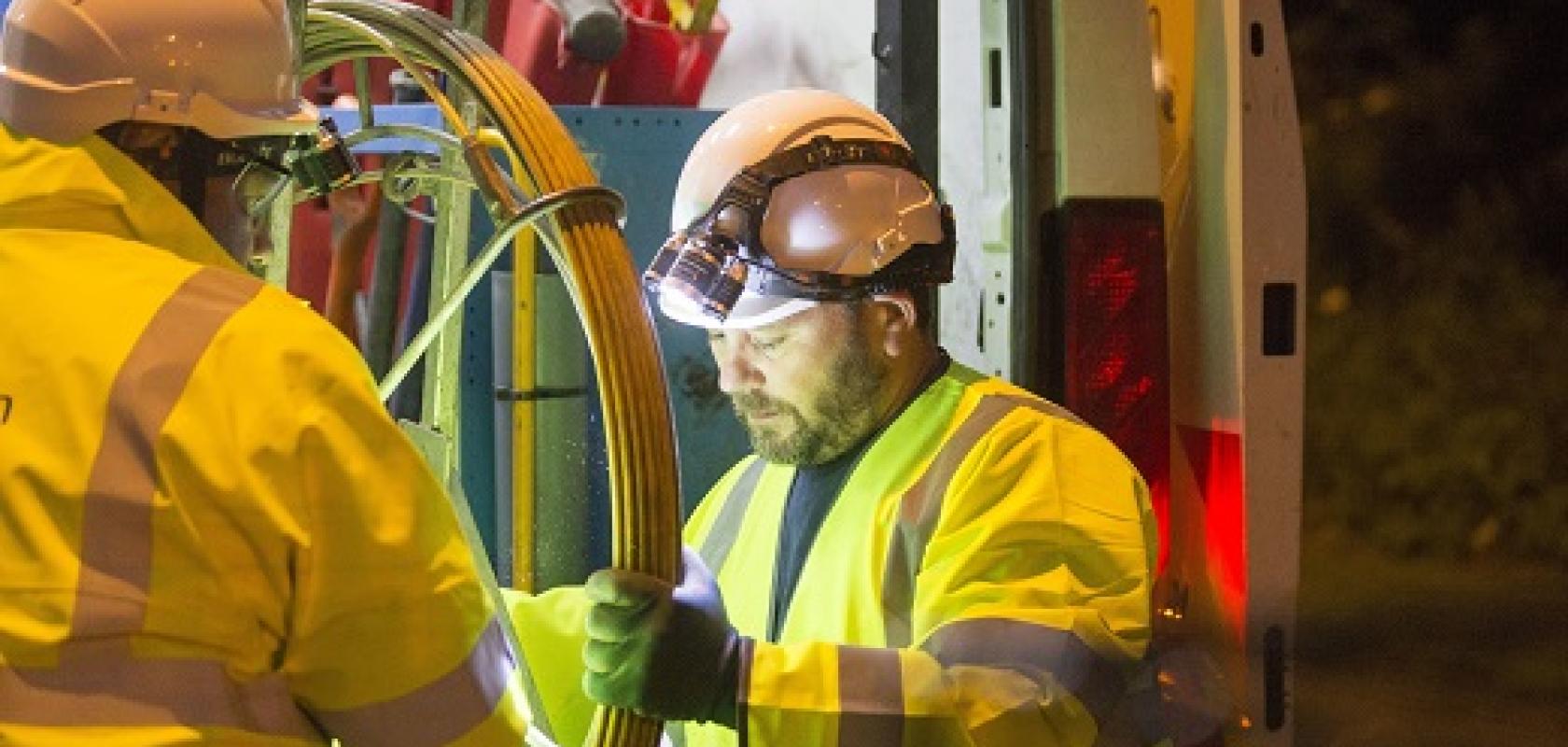Openreach, the access network division of BT Group, said there is broad industry support for the wider roll out of fibre to the premises (FTTP) in the UK, and that it should be part of a major ‘copper switchover’ across the UK – which would see old telephone cables retired.
Deciding how to recover the costs of such a major investment will be critical, with Openreach suggesting that increased wholesale charges could be used to share costs across all end users, not just those who opt for higher speeds on the new platform.
The announcement is the result of the first major confidential consultation led by a Openreach as an independent entity (see BT agrees on Openreach split but rivals continue to complain). Openreach has been consulting its wholesale customers to assess the demand for a large FTTP network that could deliver gigabit speeds and more reliable broadband services for decades to come.
There is broad agreement among Openreach’s customers – companies like Sky, TalkTalk and Vodafone as well as BT and a raft of smaller service providers – that FTTP would safeguard the UK’s position as a leading digital economy.
Openreach says it’s prepared to make the necessary investment, providing that the communications industry, Ofcom and government all work together to make the business case viable.
“We believe that under the right conditions, we could build FTTP connections to ten million homes and businesses by the mid-2020s,” said Clive Selley, CEO, Openreach. “We want to do it, we think it’s the right thing to do for the UK, but it’s clear that we can’t do it alone, so I’m encouraged to hear that our wholesale customers support our vision.”
The consultation, which ran from mid-July to the end of September, found broad support for Openreach to build a large-scale FTTP network which would bring substantial benefits for all, including better, more predictable services and faster, more consistent broadband speeds. It also highlighted significant benefits for the British economy and society, such as productivity growth, opportunities for smart cities, and greater application of e-health and e-learning services.
In the near term, most communications providers expect Britain’s existing broadband technologies will be adequate, but they agree that ultimately a large-scale FTTP network will be a necessity. There is no consensus on when gigabit speeds will be needed, but given the timescales involved in building out a new FTTP network, there is strong support for Openreach to start the engineering work required sooner rather than later.
Some of Openreach’s wholesale customers even expressed an interest in sharing the risk of the investment, in return for preferential terms on the infrastructure that’s built.
Openreach highlighted several key issues that will affect its investment decisions: proving that Openreach can build FTTP at scale for a competitive cost; agreeing how investment costs can be fairly recovered; and ‘FTTP switchover’, where all customers should be migrated over to the new network as quickly as possible after it has been built in a given area.
Openreach estimates that building FTTP connections all the way to ten million front doors would cost in the region of £3 billion to £6 billion, so deciding how that investment can be recovered fairly through wholesale pricing will be critical to making the business case work, the company said.
To recover the costs of such a large investment, Openreach would need to increase the wholesale prices it charges. A large-scale FTTP network is likely to benefit a broad set of customers over time, so Openreach believes the costs should be spread fairly across a broad customer base to reflect that. This would help to keep down any wholesale price increases required to support the investment case, the company said.
That’s a clear message to the regulator. The regulatory approach to date has seen the UK enjoy some of the lowest broadband prices in Europe, by focusing on competition to ensure that consumers do not pay excessive prices for their broadband. Ofcom is currently consulting, though its Wholesale Local Access Review, on how the regime will be applied in the future.
Openreach is calling for what it calls “a more supportive policy and regulatory environment to build more FTTP in the UK”, including “a constructive resolution” to the application of business rates and to Ofcom’s Wholesale Local Access (WLA) market review (see Ofcom: business connections can share BT’s ducts and poles). The economic case will also rely on local and central government support to reduce red tape, for example by simplifying the processes for building new infrastructure on private land (see Wayleave reforms could boost UK digital deployment).
On a positive note, however, the costs of building FTTP are coming down. Openreach has been trialling new deployment and installation processes, drawing on the latest techniques and tools from around the world. This activity has already resulted in a halving of the cost of its FTTP delivery over the last year, the company said.
The consultation also uncovered broad support for a ‘switchover’ approach to FTTP which would migrate all customers onto the new platform – and retire the old one – as quickly as possible after it has been built in a given area. But it’s clear that the operational complexity and cost of such a programme would be significant.
Both Openreach and its wholesale customers agree that protecting service continuity during a switchover – especially for vulnerable consumers – and communicating the process effectively would be critical elements of any programme. Having acknowledged that, there was agreement that migrating customers in this phased approach would maximise the benefits for all parties and help to strengthen the economic case for investment.
Openreach said it doesn’t underestimate the scale of the task. “We’re under no illusions about the challenges that lie ahead because we need to build a business case that’s workable and fair for everyone. That means we need a regulatory environment that encourages investment, and we need to agree how the costs of such a huge engineering project can be recovered fairly from all those that stand to benefit,” said Selley.
The company is now considering all of the responses and options carefully as it develops its new network strategy. Openreach will then invite views from CPs on a more specific set of proposals that cover potential pricing, footprint, and a plan for automatic switchover, by the end of 2017.


